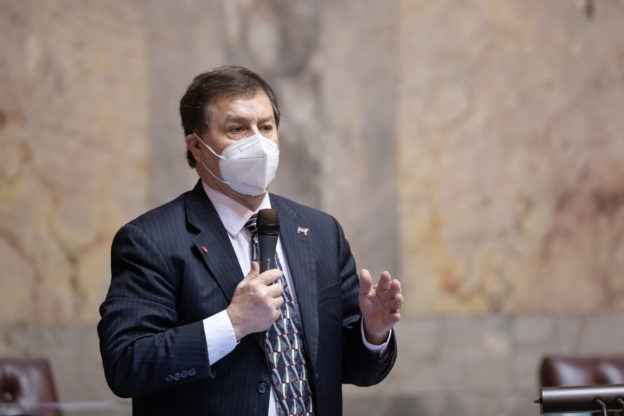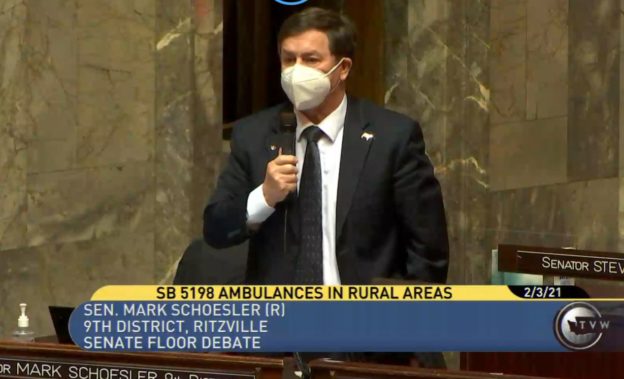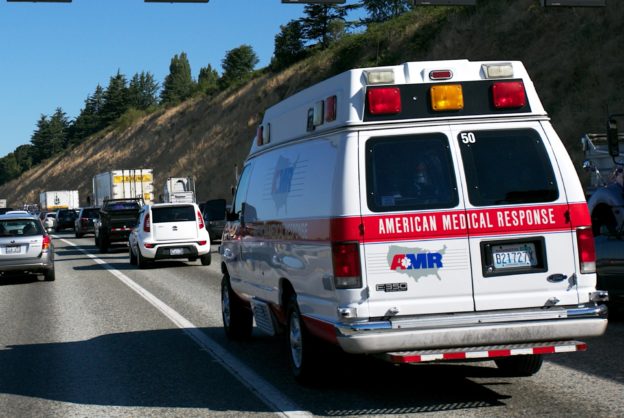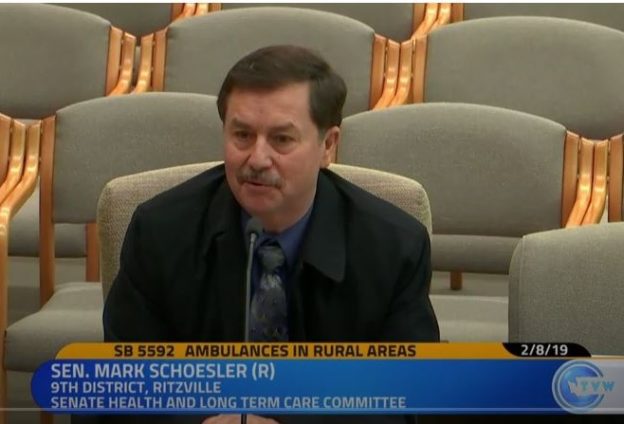A bill prime-sponsored by Sen. Mark Schoesler making it easier for two tiny Whitman County towns to continue providing joint ambulance service was signed today by Gov. Jay Inslee.
A 2017 state law allows rural ambulance-service providers to overcome personnel shortages by allowing ambulance drivers who don’t have first aid or medical training. It inadvertently left out ambulance services shared by two or more municipalities.
“This bill will allow the continued operations of shared ambulance services so communities like Farmington and Garfield don’t have to turn to other providers farther away, simply because the driver of the ambulance isn’t trained in first aid,” said Schoesler, R-Ritzville.
Schoesler’s proposal, Senate Bill 5198, permits ambulance services established by an association comprising two or more municipalities in a rural area to use a driver without any medical or first-aid training.
“This bill and the state law it updates both work because when an ambulance carries a patient to a hospital, the driver really doesn’t have a role in caring for the patient,” said Schoesler. “The EMTs in the back really are the persons in charge. The driver simply needs to be at least 18, pass a background check, and possess a valid driver’s license with no restrictions. This is a common-sense bill that uses the co-op principle to meet the needs of rural communities. Having it become law is a victory for Farmington and Garfield.”














